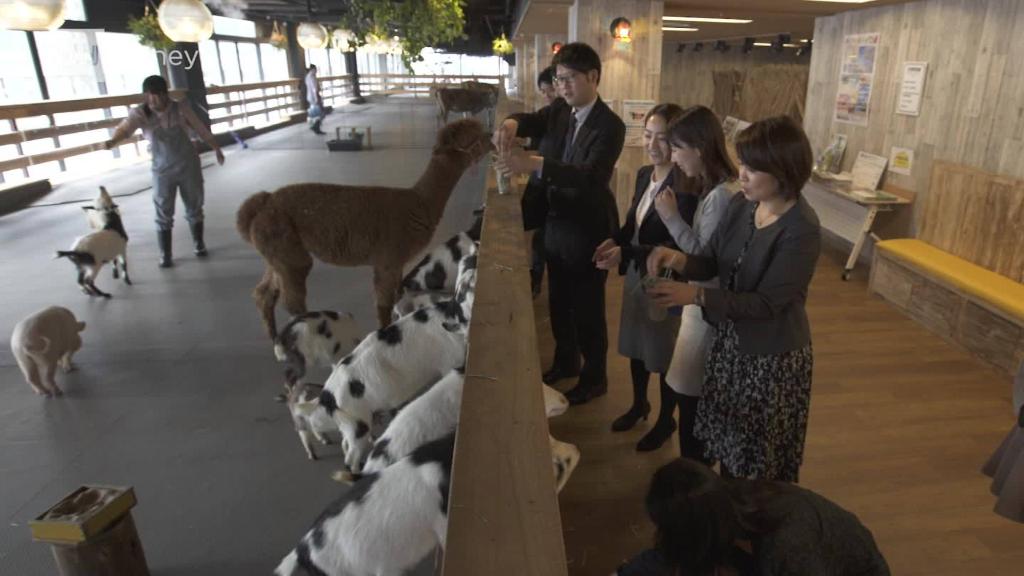
Perks like free car washes, dry cleaning pickup and a fully-stocked kitchen can help entice new workers to join a company.
But they won't necessarily keep them there.
"It's a job seeker's market right now. That means employers need to work a little harder to find and retain talent," said Sarah Stoddard, senior public relations specialist at Glassdoor. "And when you boil it down to what employees are really looking for, it is traditional benefits with a strong company culture — one that really values employees."
Having a strong company culture helps workers feel more purposeful and connected to their work. That leads to more engaged and loyal workers.
"You can pay attention to how much people are paying and their perks and benefits, but ... I would argue that you can catch up to those offerings very fast," said Chuck Edward, Microsoft's head of global talent acquisition. "The real differentiators are company cultures."
That's something Microsoft (MSFT) has been working to nurture. "Culture is the new currency," said Edward. "Culture and impact matters, that is what an applicant with a lot of choices is anchoring their decisions on more and more."
It only takes a few ingredients to create a culture that workers want.
Trust your employees
Trust in the workplace is essential: among colleagues and also between workers and managers.
"Building trust within a workplace between everybody from the intern to the manager to the CEO makes an impact," said Stoddard. "It shows that the leadership empowers and trusts their employees to make decisions to move the company forward."
Let them grow
Workers want growth and advancement opportunities along with new experiences within their positions.
"Offering employees a personalized pathway to grow and develop skills is the No. 1 way to retain them," said Jeanne Meister, founding partner of human resources advisory and research firm Future Workplace. "It shows that you understand growing one's skillset is the key to long-term employability."
Offering benefits like online classes and courses that expand workers' training and new work experiences and projects also helps boost morale and motivation.
Workers also need to feel like they're making an impact on the company, said Meister. "They need to understand how what they are doing fits into the bigger picture."
Talk to them ... a lot
Informed employees are satisfied employees. And an annual performance review or sporadic email blasts aren't going to cut it.
"Having frequent and transparent communication is important," said Stoddard.
Talking about a worker's achievements and role while also setting very clear and obtainable goals is key to keeping workers engaged.
Paul Marciano, author of "Carrots and Sticks Don't Work" recommended having "stay" interviews, when managers check in with their team members to get a sense of how they are doing and what they need to continue to be successful. It's also important to acknowledge an employee's hard work and achievements.
"People don't exit an organization in a day, they don't wake up one morning and say, 'I am going to go.' There is usually a time period during which they become disgruntled," he said.
Managers should also make sure to give workers the freedom to do their job.
"Nothing kills initiative more than micromanagement," said Marciano. "It's like saying, 'hey, I don't trust you to get the ball over the line.'"
When a company frequently provides updates and explanations of certain decisions and initiatives, workers feel more involved.
"It helps employees feel like they are building a company together and gives them more of a slice of the pie," said Stoddard.
And when the company makes a mistake, don't hide from it.
"Be very transparent, state the facts and how the company is going to work through this, is a proactive offensive strategy to help employees understand where they are today," advised Paul McDonald, a senior executive director at Robert Half, a human resource consulting firm.
Be respectful
Workers who feel respected tend to be more engaged and care about their work.
"When people leave an organization, sometimes it's for money, but the vast majority of people leave because they don't feel they are treated respectfully, they aren't recognized or acknowledged and are not given the opportunity to be successful," said Marciano.
Small moves like showing up on time for meetings, not interrupting and following through on commitments, can all promote respect in the office, according to Marciano.
"When you are respected in your tribe, that means you are viewed as having value and are protected," he said.
